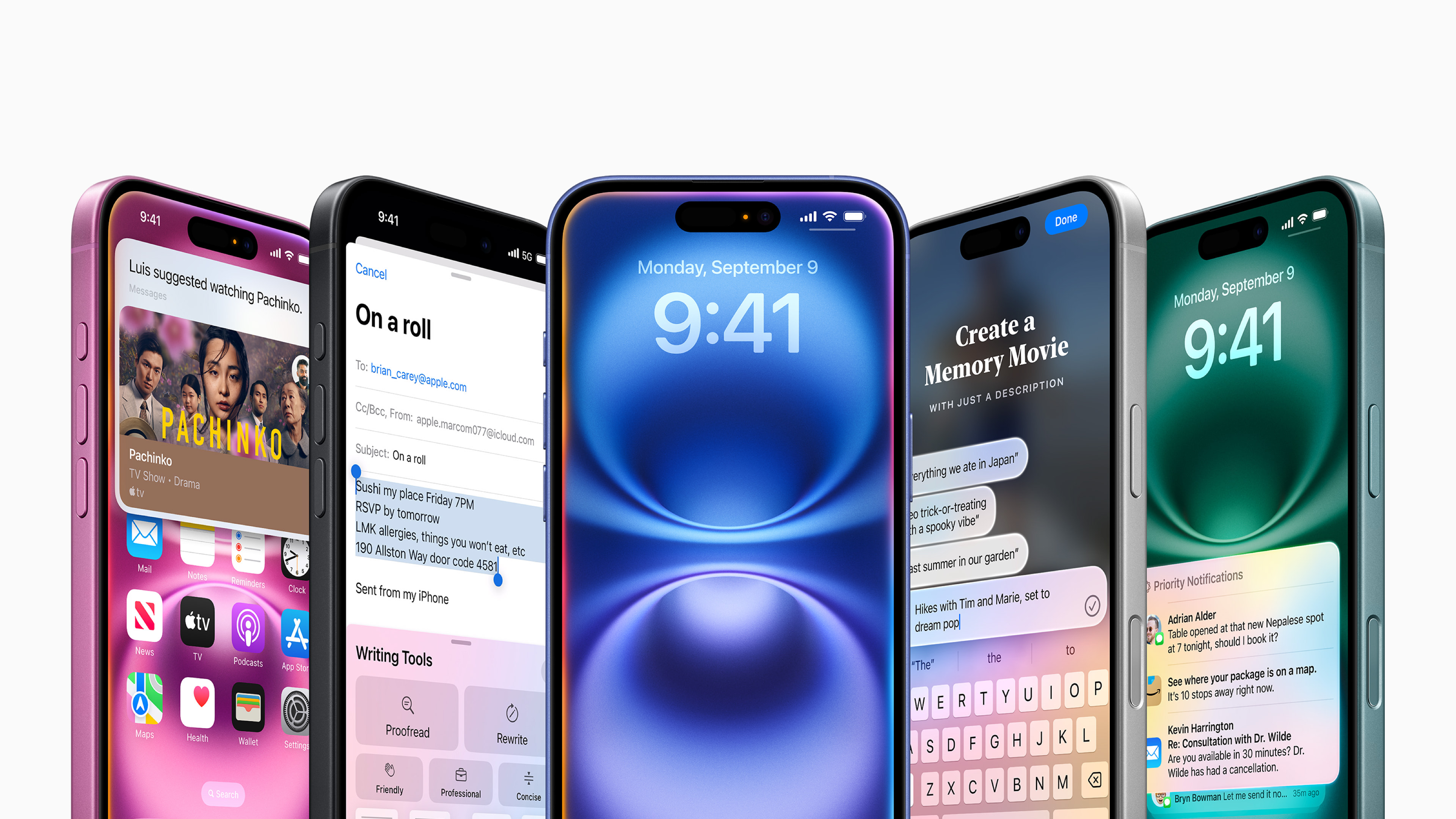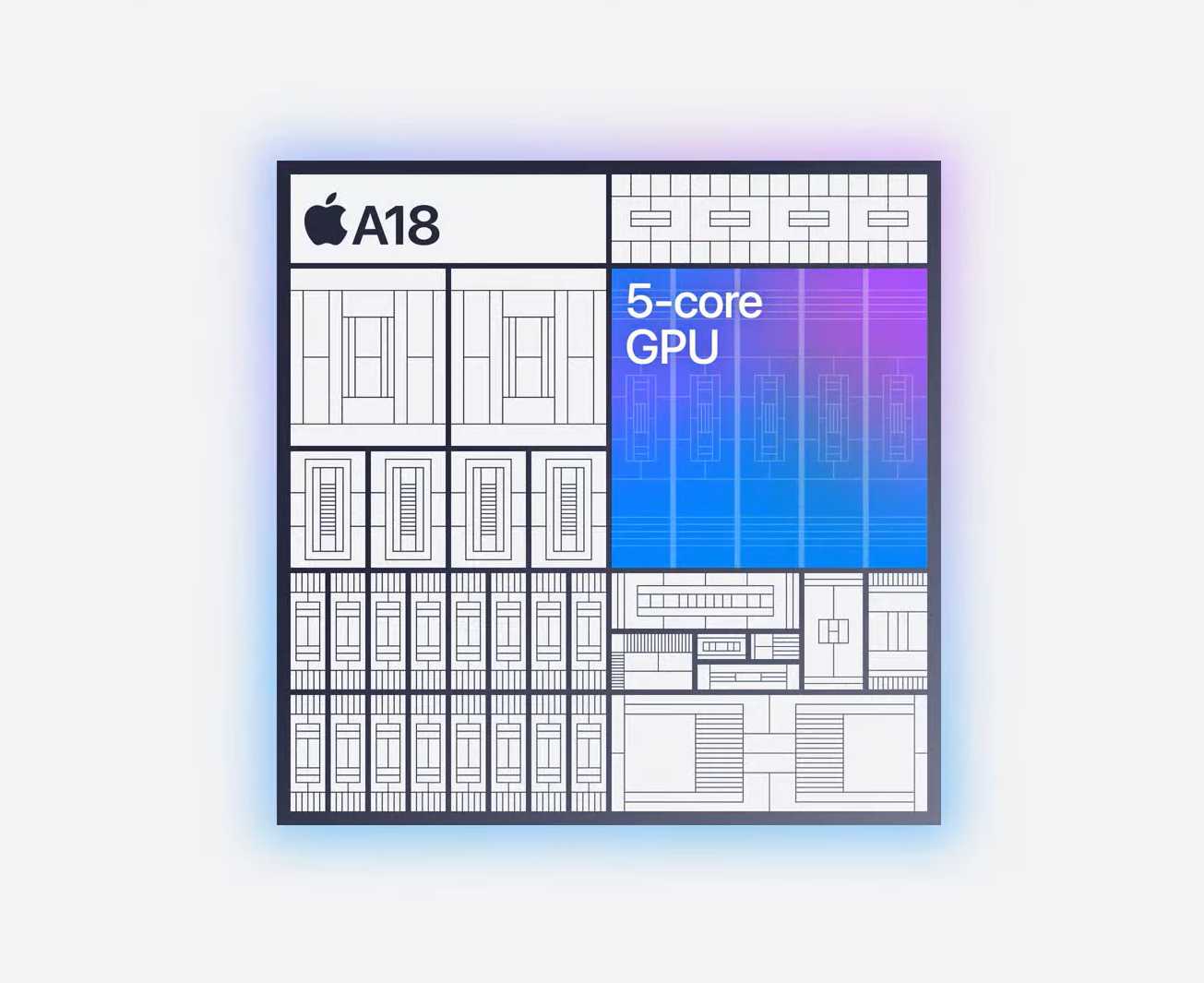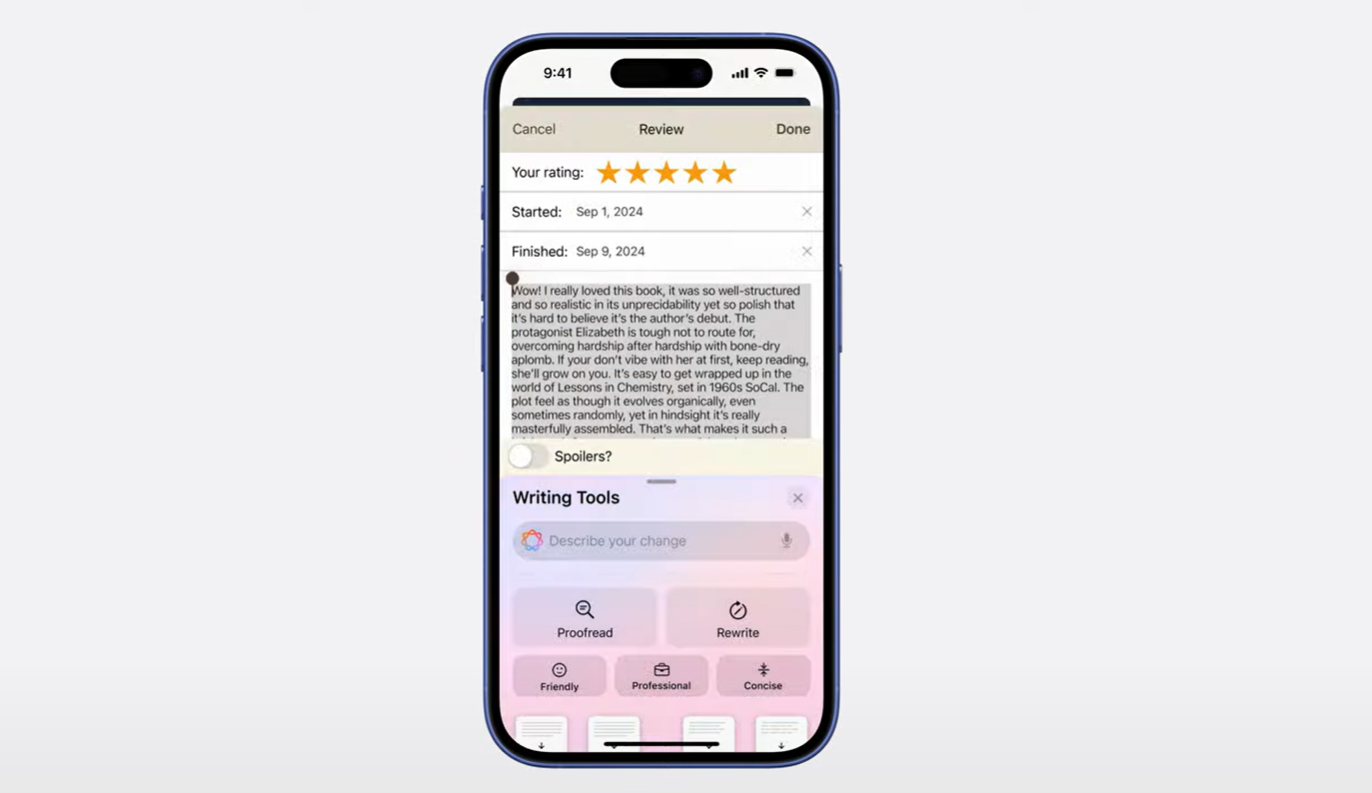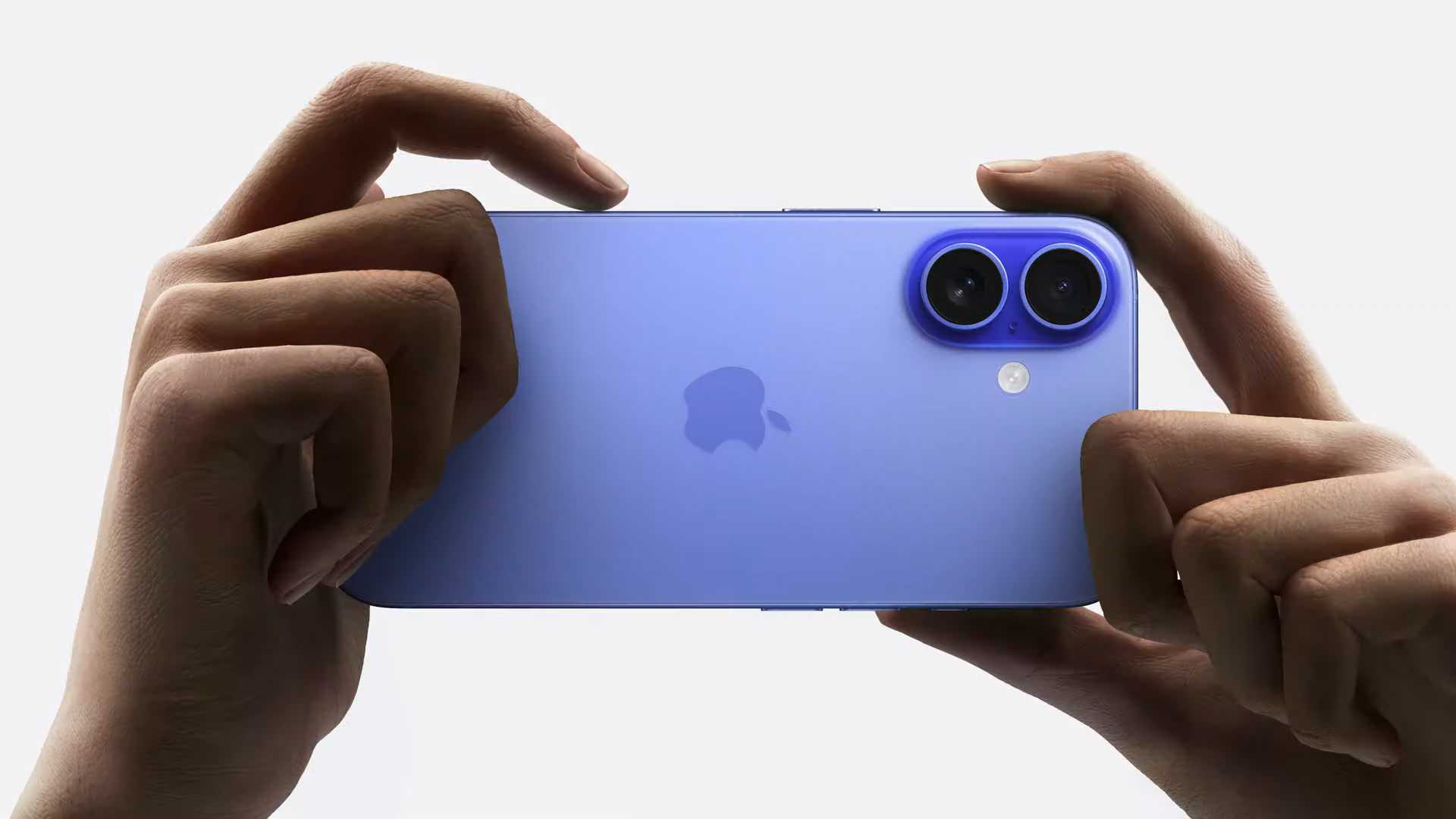Apple unveiled a new generation of iPhones at the GlowTime event on September 9, 2024. The iPhone 16 comes with Apple Intelligence features and a selection of upgrades and tweaks that we’ve come to expect with the annual releases. Some people update their iPhones every year and will be wondering if it is worth updating from the iPhone 15 to the iPhone 16, others will be updating from an older iPhone and deciding whether to go whole hog and get the iPhone 16, or if they would be better off saving some money and getting the iPhone 15.
We are here to help you choose between the iPhone 15 and iPhone 16. In this article, we’ll explain what’s different and what is the same and whether the iPhone 16 is worth the extra cash. We compare the old and the new models to see which one you should buy.
iPhone 16 vs iPhone 15: Design and Build
Apple
Viewed from the front, the two generations of iPhone look very similar: both have a Dynamic Island (the evolution of the notch), both have squared-off edges on an aluminum chassis. However, turn the iPhone around and it’s clear they are different. The iPhone 16 colors are much bolder and darker, and the camera layout is different, so it will be clear that you’re sporting the latest model.
iPhone 15 came in Pink, Yellow, Green, Blue, and Black. While the new iPhone 16 boasts Ultramarine, Teal, a rather vivacious Pink, along with Black and White liveries.
The other difference can be seen on the side of the new iPhone 16. The iPhone 16 sports two buttons on the side. First it gains the Action button first seen on the iPhone 15 Pro models. The Action button replaces the Mute switch found on the iPhone 15 and can be customized to trigger various tasks which can be chosen via a menu created using Shortcuts.
Joining the Action button is the Camera Control button. This is a recessed surface built over a taptic engine (like those found in the last few generations of Home buttons on iPhones) and it’s touch sensitive. It brings cool new tools, which we’ll cover in the Camera section.
The size and weight of the two models are practically identical, with the newer iPhone being slightly smaller and lighter, as you can see below:
- iPhone 15: 5.81 x 2.82 x 0.31 inches (147.6mm x 71.6mm x 7.8mm); 6.02 (171g)
- iPhone 16: 5.81 x 2.82 x 0.31 inches (147.6mm x 71.6mm x 7.8mm); 6.00 (170g)
Both phones sport the same IP68 water and dust resistance ratings, Face ID, USB-C charging and MagSafe. The iPhone 16 adds support for 25W wireless fast charging if you have a 30W or higher MagSafe charger.
iPhone 16 vs iPhone 15: Display
Apple
Apple uses the same 6.1-inch Super Retina XDR panel on both models, with a 2,556 x 1,179 resolution and 440ppi, HDR, True Tone, Haptic Touch, wide color display, and typical max brightness of 1,000 nits or 1,600 nits in HDR and 2,000 nits in outdoor mode.
The key difference is that the iPhone 16 can drop down to a 1 nit brightness when in the dark and Apple states that it is protected by the latest version of its Ceramic Shield (although it doesn’t say how much this is better than the Ceramic Shield on the iPhone 15). This should mean that if you drop the phone the glass will be less likely to shatter, but we still recommend putting a screen protector on your iPhone, or at the very least an iPhone case that has a raised lip around the edge.
The Dynamic Island that first appeared on the iPhone 14 Pro devices is present on both devices. The Dynamic Island makes the notch required for the camera and Face ID technology more useful by adding software animations around it that depend on what function you are using.
iPhone 16 vs iPhone 15: Tech Specs
As you can see from the comparison table below, the iPhone 16 is slightly lighter and smaller than its predecessor, it offers two more hours of battery life, features the new Fusion camera, can take Macro photographs (first time in a non-Pro iPhone) and offers the new Spatial Capture feature. There’s also Wi-Fi 7 and support for faster MagSafe charging.
| iPhone 15 | iPhone 16 | |
| Display | 6.1-inch 2556×1179 460ppi Super Retina XDR OLED display; 1000/1,600/2,000 nits peak brightness (TypicalHDR/Outdoor); Dynamic Island; Ceramic Shield front | 6.1-inch 2556×1179 460ppi Super Retina XDR OLED display; 1000/1,600/2,000 nits peak brightness (TypicalHDR/Outdoor); 1nit minimum brightness; Dynamic Island; next-generation Ceramic Shield front |
| Processor | A16 | A18 |
| Storage | 128GB/256GB/512GB | 128GB/256GB/512GB |
| Rear Camera | Dual 48MP f/1.6 Main, 12MP f/2.4 Ultra Wide; 0.5X, 1X, and 2X zoom; Smart HDR 5 | Dual 48MP f/1.6 Fusion, 12MP f/2.6 Ultra Wide; 0.5X, 1X, and 2X zoom; Smart HDR 5, Macro, Spatial Capture |
| Front Camera | 12MP TrueDepth, f/1.9 | 12MP TrueDepth, f/1.9 |
| Video Recording | 4K video recording at 24 fps, 25 fps, 30 fps or 60 fps, HDR video recording with Dolby Vision up to 4K at 60 fps, Cinematic mode, Action Mode | 4K video recording at 24 fps, 25 fps, 30 fps or 60 fps, HDR video recording with Dolby Vision up to 4K at 60 fps, Cinematic mode, Action Mode, Spatial video, Wind noise reduction, Audio mix |
| Biometric Security | Face ID | Face ID |
| Control options | Mute switch | Action button, Camera Control button |
| Wi-Fi | Wi-Fi 6 | Wi-Fi 7 |
| LTE | 5G | 5G |
| Battery life | 20 hours (video playback) | 22 hours (video playback) |
| Charging | USB-C | USB-C |
| Wireless Charging | Yes, with MagSafe | Yes, with MagSafe (charging up to 25W with 30W adapter or higher) |
| Bluetooth | 5.3 | 5.3 |
| Apple Pay | Yes | Yes |
| Waterproofing | IP68 | IP68 |
| SIM | Dual (nano and eSim or 2x eSIM in US) | Dual (nano and eSim or 2x eSIM in US) |
| Dimensions | 147.6mm x 71.6mm x 7.8mm | 146.7mm x 71.5mm x 7.8mm |
| Weight | 171g | 170g |
iPhone 15 vs iPhone 16: Performance
Macworld
The biggest difference between the two models is found in the processing department. Apple has moved from the A16 chipset in the iPhone 15 to brand new A18 silicon for the iPhone 16. This marks a change from the past couple of years when the standard iPhone adopted the processor of the Pro iPhone in the previous generation. This not only brings generational improvements in performance and power efficiency, but it also unleashes the main selling point of the iPhone 16 range – Apple Intelligence. More on that in a minute.
Apple announced that the A18 has a 6-core CPU with 2 performance cores and 4 efficiency cores. It is built on an updated 3nm process, with a 16-core neural engine that’s 2x faster at machine learning than that of the A16 Bionic. There’s also 17% more system memory bandwidth to keep things snappy.
Apple says the A18 is it 30% faster than the A16 and 30% more power efficient. This can be evidenced by the additional 2 hours of battery life that Apple says you’ll get with the iPhone 16. Remember, these devices are exactly the same size so that’s some impressive gains.
There are also enhancements to the GPU, which is stated to be 40% faster and 35% more power efficient than the one in the iPhone 15. So far, the iPhone 16 has stolen quite a march on its older sibling.
iPhone 15 vs iPhone 16: Apple Intelligence
YouTube / Apple
So, enter Apple Intelligence. This is Apple’s AI assistant, which permeates iOS 18 and brings a wide range of helpful software tools for day-to-day tasks. We’ve already had a preview of the AI features at the WWDC event in July where Apple unveiled Apple Intelligence. But, in a nutshell, it will help you write emails or pretty much anything you like, tidy up anything you’ve already typed, create emojis from text prompts, find photos in your library just by describing what’s in them, give you summaries of messages in Mail, improve the way Siri works and what it can do, plus a range of other potentially very useful things.
Visual Intelligence is something akin to Google Lens, where you can point your camera at places or products and Apple Intelligence will find more information about it for you.
There’s also the big advantage of Private Cloud Compute, where Apple’s servers will process information for you, but not store your data. In the age of AI, where prompts and what they create are often stored and used by companies, this could well be a selling point on its own.
Apple Intelligence requires specific hardware to run, so it isn’t available for iPhone 15, but you’ll get it on iPhone 16 and all iPhones from this point on. It does feel like a demarcation point for iPhone, so be sure to factor that into any buying decision.
iPhone 15 vs iPhone 16: Cameras
Apple
The iPhone 15 comes equipped with a 48MP f/1.6 sensor in the main camera, paired with a 12MP f/2.4 Ultra Wide sensor. These combine to offer 0.5x, 1x and 2x optical zoom capabilities. There’s also Sensor-Shift optical stabilization to keep things crystal clear, Smart HDR 5, portrait lighting, Night mode and other cool photographic features. It’s a great combination that will satisfy most people, who just want an excellent camera with a few options.
It’s almost the same on the iPhone 16, although Apple has called the 48Mp f/1.6 main module a Fusion camera. Apple claims that this can capture optical quality 2x telephoto zoom images, but the iPhone 15 also had a 2x zoom option. We can only assume at this point that the increased computational power of the A18 processor must be adding something here to the quality.
There’s still a 12Mp Ultra-Wide camera accompanying the main shooter, but this time the aperture goes up to f/2.6 and there is a new macro photo feature for close-ups of small details (previously the macro was a Pro iPhone only feature). Again, the iPhone 15 had a 0.5x zoom, so it must be something in the software that makes Apple more excited about the images.
There are no updates to the front-facing FaceTime camera, so you’ll find the same 12MP f/1.9 TrueDepth sensor on both.
A new positioning of the rear cameras (in conjunction with the A18 chip) means that the iPhone 16 offers a new Spatial Capture feature. This means that stereoscopic images that will work with Apple Vision Pro can be taken. Obviously there is quite a niche market for that right now.
On the video side of things, both iPhones can record video up to 4K at 60fps, offer Cinematic and Action modes, and have Night mode time-lapse, slo-mo, and regular slo-mo modes, plus audio zoom and shift-sensor stabilization. The iPhone 16 gains Spatial video and audio for the Apple Vision Pro, plus it has a new Wind Reduction feature to clean up noisy recordings.
The main boost for the cameras on the iPhone 16 though is the new Camera Control button on the side. This gives you quick access to software controls for the camera just by giving it a soft-press, you can then adjust the settings by sliding your finger across the touch-sensitive surface, which translates to the options on the screen. Then, when you want to take the shot, a harder press turns it into the shutter button. The Camera Control button also lets you instantly launch the camera so you don’t miss those important moments.
iPhone 15 vs iPhone 16: Price
As is usually the case, Apple slots the new model in at the same price as the one it replaces, with the older one getting a discount but remaining in the catalog.
So, the new iPhone 16 starts at $799/£799 for the 128GB model, while the iPhone 15 gets a new $699/£699 price tag for the same storage configuration.
With just $100/£100 between the two phones it looks like the newer iPhone 16 offers much better value for money, but it is worth considering if storage is more important to you than the latest tech, because that extra $100/£100 can also double your storage.
Here’s the full breakdown:
iPhone 16
- iPhone 16 (128GB) – $799/£799
- iPhone 16 (256GB) – $899/£899
- iPhone 16 (512GB) – $1,099/£1,099
iPhone 15
- iPhone 15 (128GB) – $699/£699
- iPhone 15 (256GB) – $799/£799
- iPhone 15 (512GB) – $999/£999
Apple announced pre-orders for the iPhone 16 start on 13 September with the devices going on general release a week later on 20 September.
Apple will continue to sell the iPhone 15, but you may be able to find a good deal at one of the many third-party retailers. Check out our best iPhone 15 deals U.S. and iPhone 15 deals U.K. pages as there could be some decent offers now that the iPhone 16 has arrived.
iPhone 15 vs iPhone 16 Verdict: Is the iPhone 16 better than iPhone 15?
The iPhone 15 is still a great device and will make most people very happy, but the A18 chip in the iPhone 16 does feel like a significant step forward. Yes, AI has promised much before and not delivered, but the rate at which it’s improving is frightening, plus the way Apple has baked Apple Intelligence into iOS 18 and the iPhone 16 makes it feel like we might get the experience that was promised all those years ago when Siri first arrived.
Add to that the improved battery life, performance, extra physical controls and their customization options, and the iPhone 16 feels like a real step forward rather than just a cautious upgrade. There’s only $100/£100 difference between the two and the iPhone 16 looks well worth the money.
For more advice read our iPhone Buying Guide and Best iPhone comparison chart.
Source : Macworld










